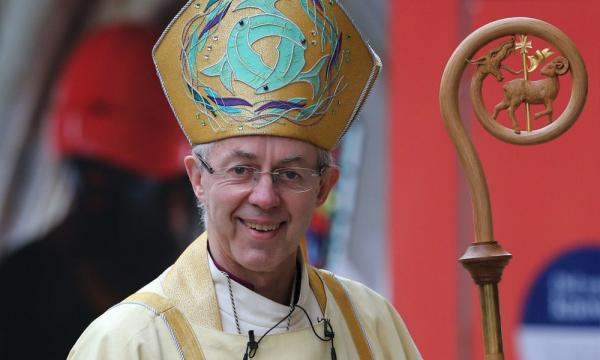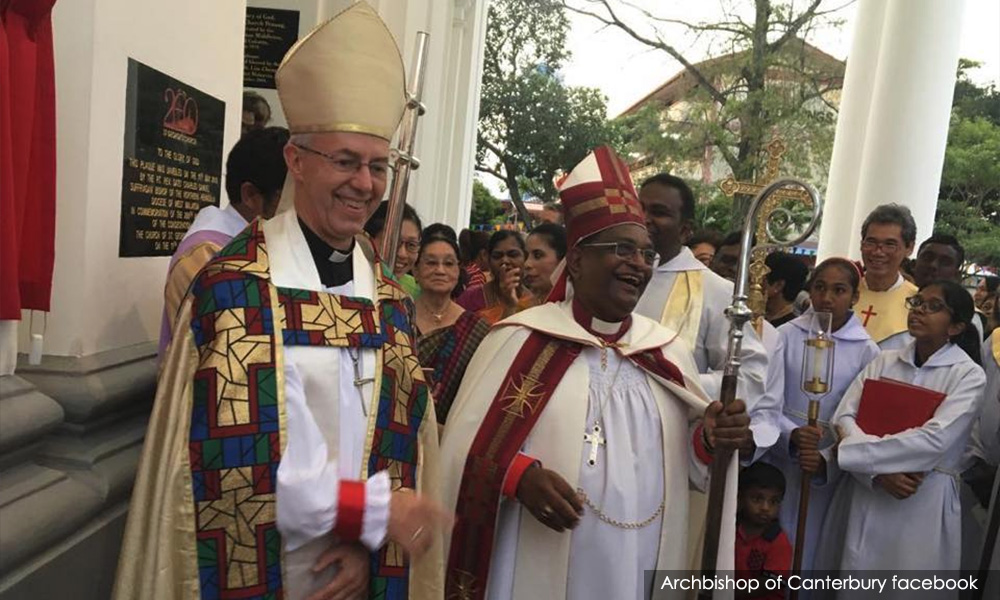COMMENT | On Easter Sunday this year, terrorist attacks shook Sri Lanka. Hundreds were killed, hotels were targeted, and Sri Lankan churches were bombed during their Easter services at a time when Christians were in church celebrating the resurrection of Jesus Christ.
Last month, I had the privilege of visiting Sri Lanka in solidarity with those who have been impacted by these attacks. I was incredibly moved to visit churches and Christian communities, where I had many powerful conversations.
I heard a story from a young Christian family, whose daughter was friends with a neighbouring Muslim girl. She had decided to visit the church with her friend to share in what should have been a special day of celebration. That young Muslim girl was amongst the many who were killed that day.
This story reveals a microcosm of the challenges facing religion in public life, but it also points towards our hope for the future. How might religious leaders like me, and political leaders of all persuasions, enable our communities to flourish? How can we make sure these kinds of friendships – the friendship between a Christian girl and a Muslim girl – are the dominant narrative, rather than the stories of violence that we more often hear?
After the attacks in Sri Lanka, I was struck by how vocal so many British Muslims were in offering their condolences, along with Jewish, Hindu and Sikh leaders. At a time when religious communities are too often seen to be associated with violence, it is encouraging to see how we can speak out on behalf of each other.
This is the essential move we need to make: how to speak for the good of the whole community so that endless cycles of violence are not repeated. For those of us who believe that this world is created by a loving God, to whom we are responsible and accountable, we cannot only care for our own community. Living like that would be to blaspheme against the God who is the creator of everything.
Back in the UK, divisions over Brexit are driving people apart and fostering increasingly violent language that I pray does not become the harbinger of violent acts. We face a very real challenge: to seek the good of all people, from the individual to the national level.
Social media and the associated rise in populist politics are making that a much harder task. But as a Christian, I need to see every person as a potential gift of God to me, even if I disagree with them on religion or politics. In our interconnected, globalised world, we all face the challenge of disagreeing well.
Here in Malaysia, you are similarly wrestling with ethnic and religious diversity, with a rich Muslim heritage living alongside Christian, Buddhist, Sikh, Hindu and other communities. Earlier this month, I saw for myself the beauty of this diversity on my visit to Penang and Sabah.
None of us has the monopoly of wisdom on the subject of living well together. My sincere conviction is that religious diversity is not a problem to be solved, but a resource to be harnessed. Within each of our religious traditions, we need to find the resources to reach out in love and service to one another.
In the Christian tradition we often draw from the Jewish Old Testament text of Jeremiah, which calls God’s people, living as a minority, to be a blessing to the city in which they are living. In fact, it is by seeking the welfare of those who are of a different faith that they will receive God’s blessing.
It is a principle encapsulated in the Golden Rule, the words of Jesus which challenge us to ‘Do unto others as you would have them do unto you’.
Each of our religious communities has resources with which to draw us together and be a people of blessing to one another. Our differences need not be a source of fear, but rather they can be opportunities for learning and discovery. This vision speaks of freedom of religion and belief as an aspect of our innate humanity that is a gift to wider society as much as it is a right.
My prayer is that both the UK and Malaysia might grow in confidence as countries that are able to discover the treasures within all our religious communities, that we can celebrate our differences, be fully rooted in our respective traditions and beliefs, while learning from each other and seeking the best for each other.
JUSTIN WELBY is the Archbishop of Canterbury.
The views expressed here are those of the author/contributor and do not necessarily represent the views of Malaysiakini.


